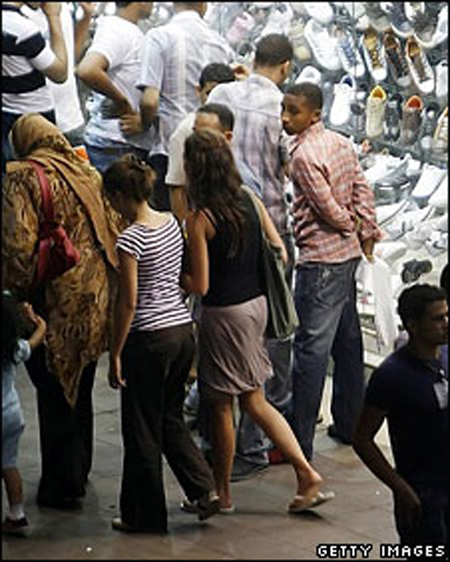In Egypt, Large Numbers of Veiled (Scarved) and Niqab-Wearing Women Sexually Harassed on the Streets
/In a followup to our Sept 2009 post about the mauling of women in Egypt by men, today’s LA Times picks up the story, reaffirming the growing problems of sexual harassment against women, especially durin feast times when thousands of Egyptians are enjoying their free time.
Slow to respond to the women’s complaints, the government only pressed charges after the October 2006 Eid holiday when cell phones and video cameras provided undeniable evidence to authorities.
The number of harassment cases during the feasts echoes a study carried out by the Egyptian Center for Women’s Rights (ECWR) last July, showing that 83% of Egyptian women and 98% of foreign females residing in the country reported being harassed via LA Times.
The typical response to women’s assertions of being sexually harassed in Muslim countries is that they were dressed provocatively and therefore invited the transgression. Yet the data in the ECWR study shows that 71.5% of women who reported sexual harassment were wearing veils (head scarves) and non-revealing clothes, and 19.6% of them were even wearing niqabs (face veils).
























































